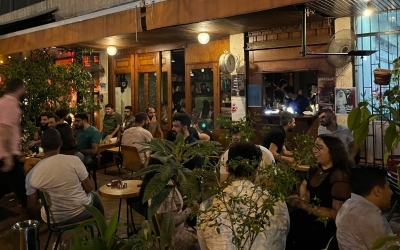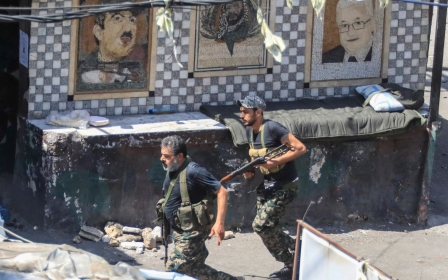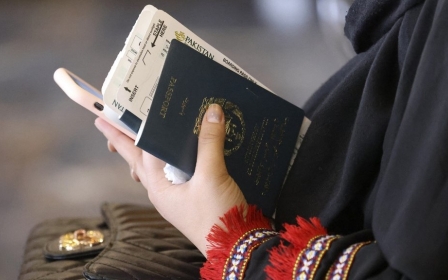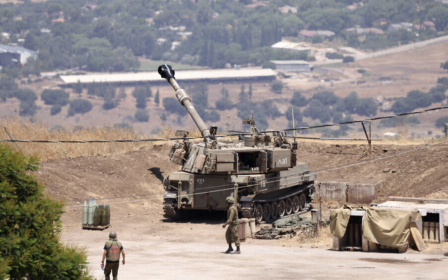Lebanon's central bank governor leaves his post with legacy in tatters

Lebanon’s veteran central bank governor, Riad Salameh, stepped down from his post on Monday after more than 30 years in the job, with two international arrest warrants against him and no successor in sight.
Salameh, 73, is one of the central figures among a Lebanese political elite widely blamed for the country's financial collapse, which has seen the currency crash and inflation and poverty soar.
Salameh is embroiled in several investigations in Lebanon and at least five other European countries for allegedly taking hundreds of millions of dollars from the country’s central bank and laundering the funds abroad.
Appointed in 1993 as governor of Banque du Liban, Salameh initially helped to stabilise Lebanon's economy as it emerged from a brutal 15-year civil war.
He now leaves a country in economic ruin, with a gross domestic product plunging to an estimated $16.2bn in 2023 from about $55bn in 2018, according to the International Monetary Fund.
New MEE newsletter: Jerusalem Dispatch
Sign up to get the latest insights and analysis on Israel-Palestine, alongside Turkey Unpacked and other MEE newsletters
Following the start of the economic meltown in 2019, Lebanon's banks have frozen depositors out of their accounts and limited all withdrawals.
Financial losses as a result of the ad hoc capital controls are estimated to be around $73bn. The World Bank has ranked Lebanon's financial crisis as the worst one globally since the mid-19th century.
Since 2019, the Lebanese pound has lost more than 98 percent of its value against the dollar, devaluing people's wages, and causing inflation and the price of goods to skyrocket.
In a report in 2022, the World Bank characterised the financial scheme used by Salameh at the central bank as a “Ponzi scheme”.
It added that a “significant portion of people’s savings in the form of deposits at commercial banks have been misused and misspent over the past 30 years”.
Critics of the central bank governor accuse him of facilitating bad economic practices and widespread profligacy in government spending, with funds also squandered through corruption.
Salameh has hit back at critics saying that the central bank was not responsible for how the state spends its money and that he’s being scapegoated by the country’s political elite to detract from their incompetence.
Lebanon has been without a president since October 2022 and is ruled by a caretaker government.
Accentuating the political deadlock in the country, discussions on a new central bank governor have dragged on for months without agreement.
The country’s political forces disagree on whether a caretaker government has the authority to appoint a new central bank governor while other political factions have largely boycotted discussions.
The central bank's first vice-governor Wassim Mansouri announced on Monday that he will be taking over as acting head and urged the government to enact long-delayed reforms.
"We are facing a crossroads," Mansouri said, adding he would not sign off on any government financing that he was not convinced by and which was "outside the legal framework".
With several international arrest warrants pending and Lebanon not allowing extraditions, Salameh, who also holds a French citizenship, is unlikely to leave the country any time soon.
While Salameh has appeared in Lebanese courts, few in the country believe he will face justice given how politicised state institutions are in the country.
Middle East Eye delivers independent and unrivalled coverage and analysis of the Middle East, North Africa and beyond. To learn more about republishing this content and the associated fees, please fill out this form. More about MEE can be found here.





